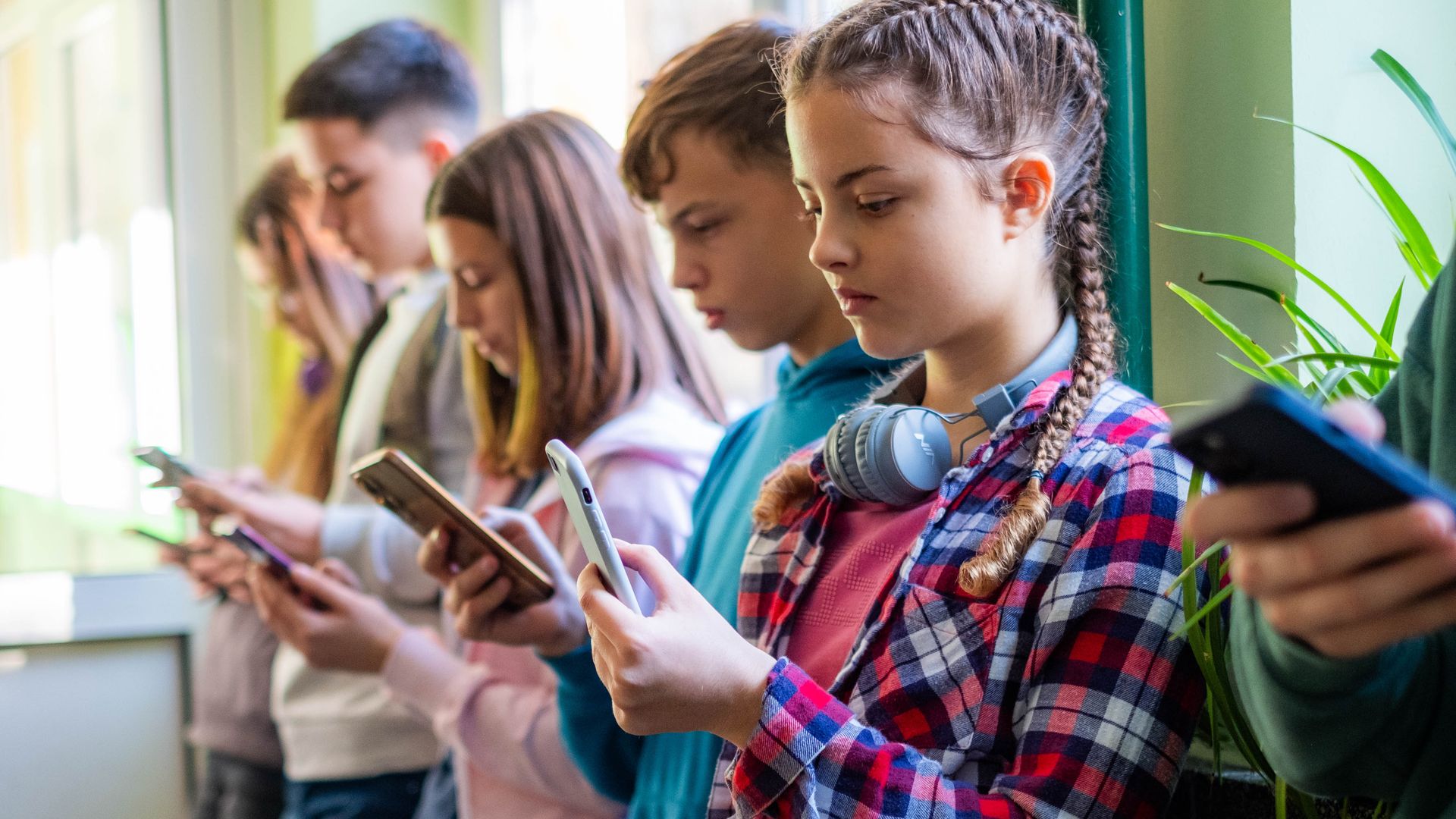A newly published study shows using smartphones before the age of 13 could damage kids’ mental health. So much so that researchers are now calling for global protections.
The study was published in the Journal of Human Development and Capabilities on Sunday, July 20.
What did the study find?
Researchers with the nonprofit Sapien Labs found that smartphone use by kids younger than 13 could be linked to higher rates of suicidal thoughts, poorer emotional regulation, lower self-worth and detachment from reality. It also found that this was especially true for girls.
Specifically, the negative mental health symptoms strongly linked to earlier smartphone ownership include not just suicidal thoughts and detachment from reality, but aggression and even hallucinations.
In addition to lower self-worth, earlier smartphone ownership was also linked to diminished self-image and confidence, lower emotional resilience among females, and lower stability, calmness and empathy among males.
The study also found the impacts compounded –– meaning the younger the smartphone user was, the worse their mental health and well-being were likely to be. Researchers say that could be because smartphone use exposes them to social media and cyberbullying at earlier ages, while also being linked to sleep disruption and poor family relationships.
How does this compare to other studies?
This is far from the first study on the impacts of screen time, social media use and smartphone access on children and teenagers.
A Pew Research Center study published in April found nearly half (48%) of 13- to 17-year-olds say social media sites have a mostly negative effect on people their age, but only 14% think they negatively affect them personally. That study also echoed Sapien Labs’ study, showing teen girls are more likely than boys to say social media hurt their mental health, confidence or sleep.
However, a study out of the University of South Florida (USF) found that despite negative mental health outcomes linked to social media use, smartphone ownership could actually benefit children.
“Kids with smartphones, for example, reported convening in-person more frequently with friends each week than kids who have no phone or share a phone with someone else,” the USF study’s authors wrote.
“Our findings indicate that the effects of smartphone ownership are complex,” said Wendy Rote, USF associate professor of psychology. “It’s what kids do with cell phones and challenges in regulating their device use, rather than merely owning a smartphone, that may cause difficulties or inversely benefit their lives.”
What do researchers recommend?
The Sapien Labs study’s authors say the findings are so concerning that they want to see global restrictions on smartphone and social media use for kids under 13.
“Based on these numbers, restricting smartphones during childhood, and in particular social media, has the potential to significantly strengthen capabilities and functionings by reducing clinical level mental distress in up to 8.5% of younger populations and suicidal thoughts in up to 20%, while improving emotional resilience and self-confidence in 12%,” the study’s authors wrote.
